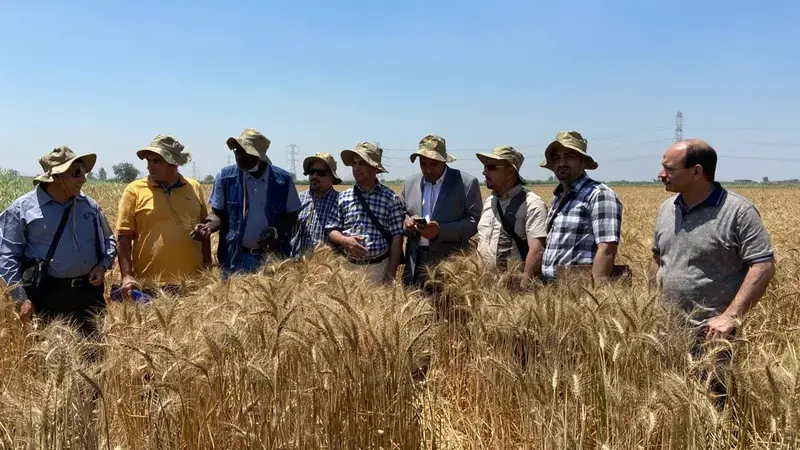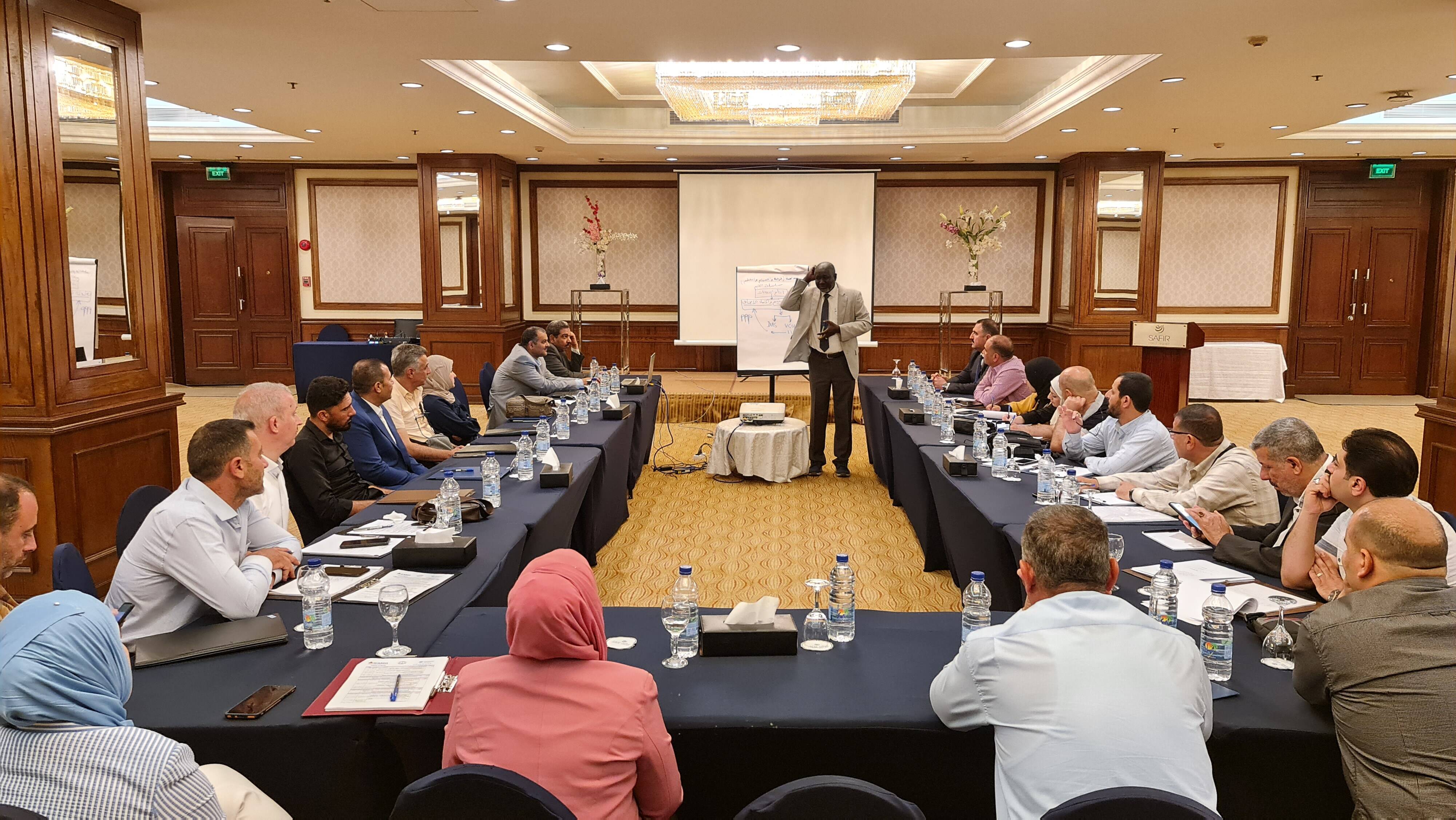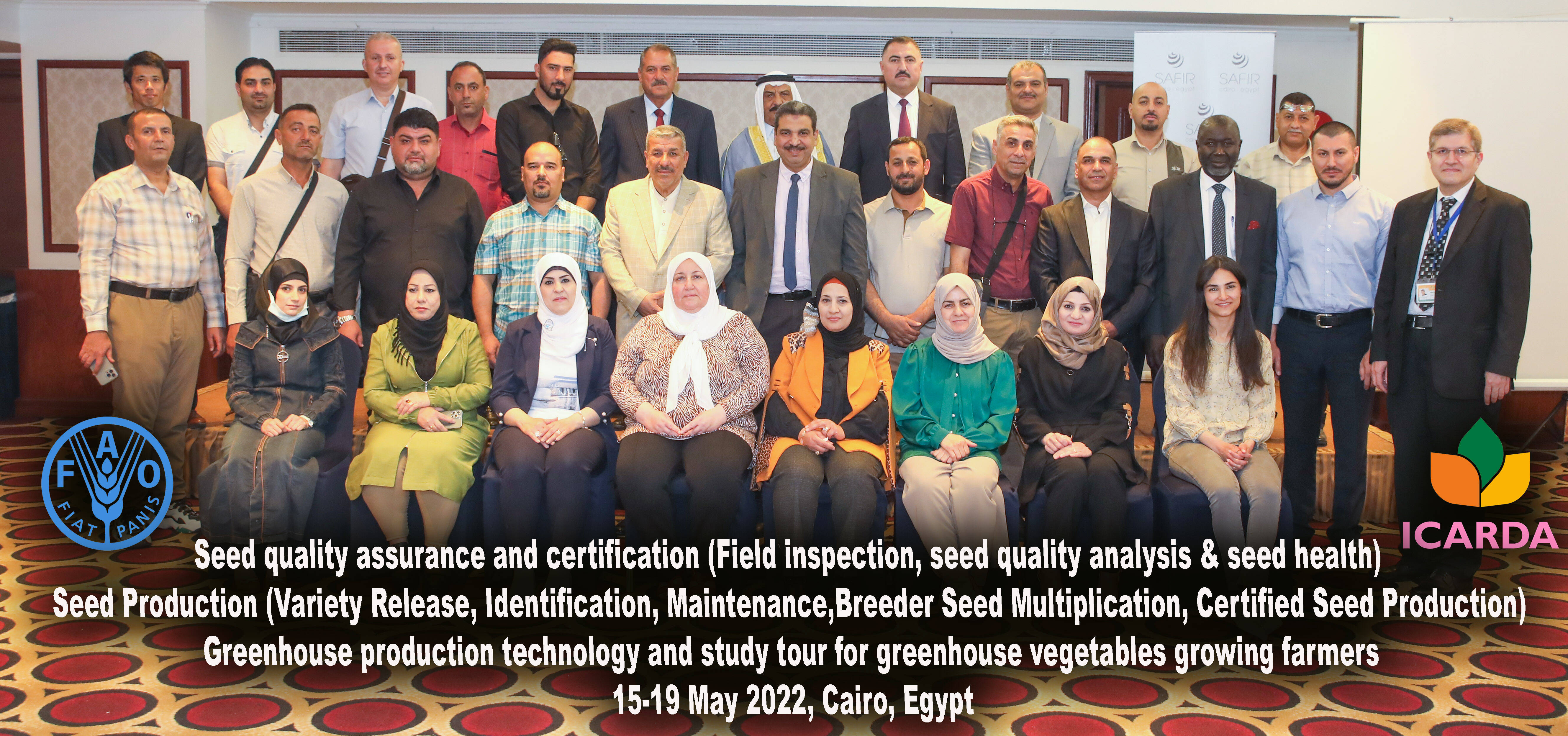ICARDA-FAO CAPACITY DEVELOPMENT WORKSHOP FOR IRAQI RESEARCHERS

ICARDA, in collaboration with the Central Administration for Seed Certification, the Central Administration for Seed Production and the Meteorology Laboratory, and the Agricultural Research Center in Egypt, recently organized capacity development workshops for Iraqi agricultural engineers and farmers with a particular focus on seed production and management and greenhouse technology under the FAO joint project supporting the agricultural livelihoods of rural and peri-urban returnees and communities in Nineveh Governorate, Iraq.
In response to threats to agricultural research and food security, particularly climate change, resources scarcity, food price volatility, and falling incomes, ICARDA’s Capacity Development Unit and the Seed and International Nurseries, and Seed Health (SINH) Unit developed and organized a series of capacity development workshops for Iraqi agricultural engineers and farmers to develop the skills and knowledge of the target farmers and agricultural experts in the areas of seed sector development and greenhouse vegetable production.
“Twenty-six Iraqis attended the training courses and will share key knowledge on seed sector development and greenhouse vegetable production to farmers and extension workers in Iraq.” – Masafumi Tamura, ICARDA Capacity Development Unit
The workshops provided training on national seed sector development in terms of policy and regulatory frameworks, governance and institutional arrangements, and specific technical and practical aspects of seed production, seed processing, seed marketing, and quality assurance.
“The longstanding and productive partnership between FAO and ICARDA’s research program has allowed the implementation of countless regional and country projects in the Central and West Asia, and North Africa Region, many strengthened by national and regional capacity-building courses,” said Dr. Zewdie Bishaw, Team Leader, Seed systems, International Nurseries, and Seed Health, “Moreover, ICARDA’s partnership with Egypt and Iraq in strengthening the national seed programs includes the organization of national and regional seed courses, strengthening and growing the partnership.”
The workshops included theoretical lectures followed by hands-on practical exercises and field visits to seed production fields, seed processing plants, seed storage facilities, and seed marketing and distribution centers covering the specific aspects of cereals and legumes management and operation of seed cleaning and treatment as well as seed plant operation, maintenance, and management. In addition to field visits to horticultural crop production facilities including greenhouse vegetable production and seedling production of fruit tree crops.
“The seed production and greenhouse technology courses aimed at supporting the private farmers to produce seed and vegetables to generate incomes and improve livelihood in the area affected by the civil unrest in Iraq. The farmers received technical and financial support to build greenhouses for the purpose of diversifying their source of income. The training aimed at building capacity to ensure sustainability beyond the project life span and to enhance profitability and technical efficiency.” – Dr. Abdoul Aziz Niane, ICARDA Regional Coordinator APRP, Genetic Resources

“The Seed Quality Assurance and Certification course aimed to provide participants with theoretical and practical knowledge and experience regarding seed certification focusing on seed field inspection, seed testing, and seed health, to ensure the safety of exchanged seed materials to prevent the introduction and control the spread of pests along with plants or plant products. The trainees received technical information in the seed health exchange to improve crops in the face of climate change and population growth.” – Dr. Safaa Kumari, Head of ICARDA Seed Health Laboratory/Plant Virologist
Capacity development lies at the heart of ICARDA’s mission to strengthen agricultural resilience. The participants’ feedback about the training was very positive on aspects such as the value of knowledge and experience gained as well as their willingness to participate in future similar training workshops.

